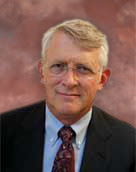Economists are a diverse lot, focusing on everything from international trade and currency exchange rates to single industries and production processes. Macro-economists focus on "big picture" phenomena like national income and employment, the money supply, and government economic policies. Globalization is literally turning their world upside down. The economic theories and models they learned in graduate school don't apply any more, so macro-economists are struggling to find new policies that will produce desired outcomes in international marketplaces.
Micro-economists, on the other hand, study resource allocation and productions processes at the level of specific industries -- including health care. A medical economist with graduate training should have the skills to study the flow of goods and services through a medical enterprise (hospital, medical group, drug company, health plan, etc.) and to identify changes that would reduce costs of production, improve quality of output, or otherwise enhance productivity of workers, equipment, and capital. A good medical economist can easily find wasted resources in the health care delivery system and then develop ways to put them to more productive use.
Medical economists should be busily at work in today's health care organizations because resources for medical services are becoming very scarce. Patients and their traditional third-party payers simply don't have any more money to pay for care. The health sector is finally hitting a budget constraint. It is no longer "different" from other sectors of the economy, so conventional economic analysis is now applicable to solving the serious problems on one of our economy's most inefficient and ineffective sectors.
When called upon to apply their analytical and problem-solving skills, medical economists can be very valuable members of clinician-led, multi-disciplinary teams with responsibility and authority to make sure that medical services are provided correctly all the time, as inexpensively as possible. I would never expect a medical economist to solve health care's problems single-handedly, but neither would I expect the problems to be solved without appropriate input from one.
Unfortunately, medical economists have tended to concentrate their efforts on a macro-economic issue, health care's rising consumption of the gross domestic product (GDP). This narrow focus makes me think of many medical economists as Chicken Littles who loudly proclaim that the sky is falling without taking time to understand what's really happening. My health sector friends in Europe have come to the same conclusion. They note that the U.S. has far more medical economists than any other country (by at least a factor of ten, I'll bet), yet it has one of the developed world's most unproductive health care delivery systems. I think that the health of our economy and our residents would be a whole lot better off if medical economists would quit talking about health care's rising costs and start doing something about it instead. What do you think?
Wednesday, February 16, 2011 | Posted by Jeffrey C. (Jeff) Bauer at 3:41 PM |
What Is a Medical Economist?
Subscribe to:
Post Comments (Atom)


1 comments:
Now, if the medical economists could help healthcare develop robust cost accounting systems that are tied to reality.
Post a Comment